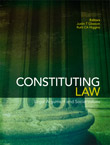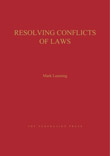Radicati on Arbitration and the draft Brussels I Review
Luca G. Radicati di Brozolo, who is a professor of law at the Catholic University of Milan and a partner at Bonelli Erede Pappalardo, has posted Arbitration and the Draft Revised Brussels I Regulation on SSRN. The abstract reads:
This paper discusses the provisions on arbitration of the European Commission’s December 2010 draft review of Reg. (EC) 44/2001 against the backdrop of the earlier proposals on the inclusion of arbitration within the scope of the Regulation. The analysis focuses principally on the functioning and implications of the lis pendens mechanism laid down by Article 29(4) of the draft, pointing out the analogy between the role conferred on the law and forum of the seat of the arbitration and the mechanism of home country control that is at the heart of European Union law. The article also analyzes the reasons and positive consequences of the Commissions’ restraint in not extending the scope of the Regulation to other arbitration – related issues, especially the circulation of judgments dealing with the validity of arbitration agreements and awards. The article’s conclusion is that the Commission proposal is well balanced. Whilst it does not solve all problems relating to conflicts between court proceedings and arbitration within the EU, it addresses the most pressing one, that of concurrent court and arbitration proceedings. Moreover, it does so in terms which, in contrast to the use of anti-suit injunctions in aid of arbitration, are reconcilable with the basic tenets of European Union law. Its approach is indisputably favorable to the development of arbitration and does not jeopardize the acquis in terms of arbitration law of the more advanced member States.



 Is the
Is the